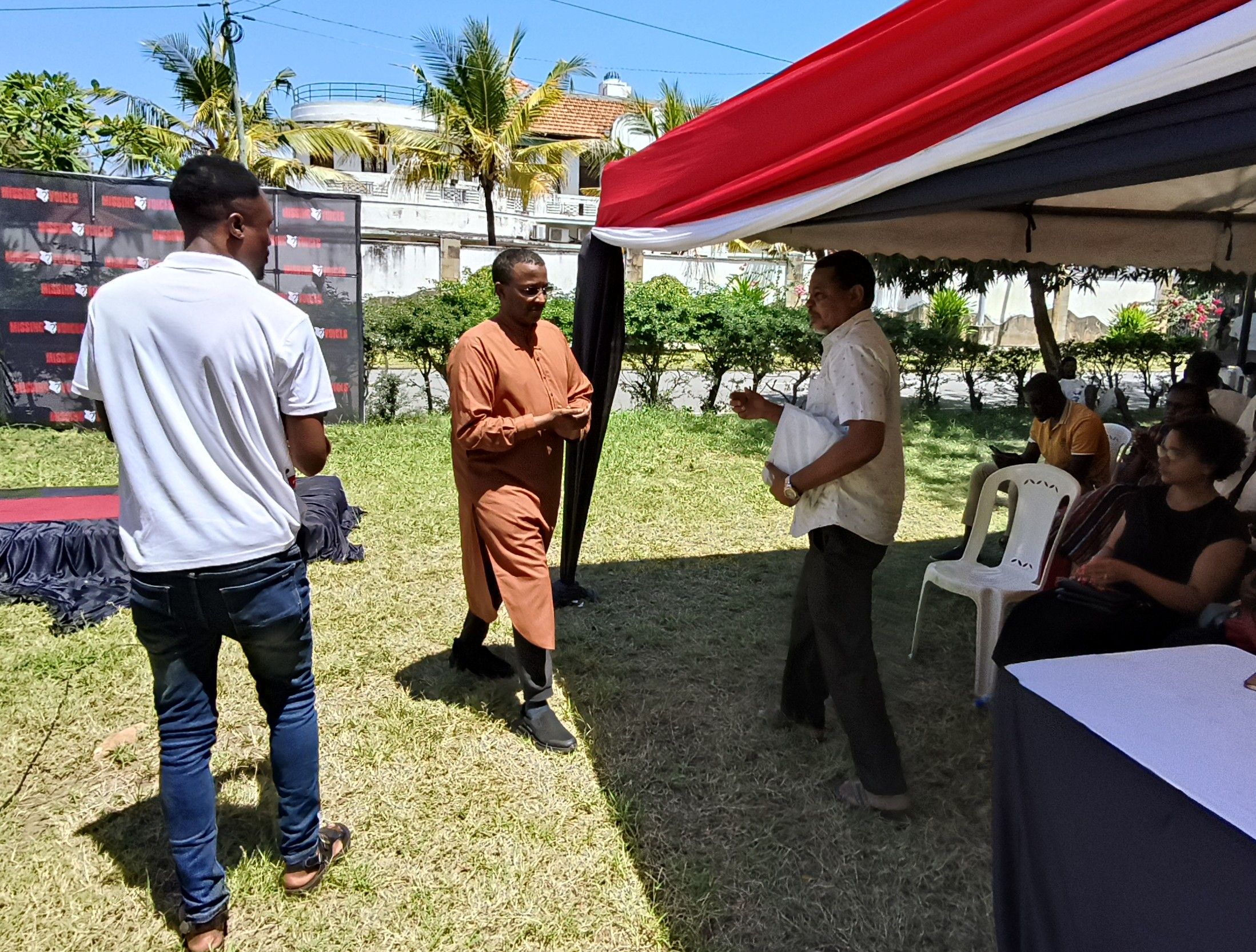
Ipoa chairman Issack Hassan
and Haki Africa executive director Yusuf Abubakar in Mombasa on Saturday /
BRIAN OTIENO
Lack of adequate staff is among the key challenges affecting the work of the Independent Police Oversight Authority (IPOA), even as it grapples with a growing backlog of cases.
IPOA Chairman Issack Hassan said the agency remains committed to ensuring justice for families whose loved ones were killed unlawfully or forcibly disappeared by the police.
However, he noted, the authority faces pressure.
“On the one hand, the police tell their superiors and the government that they cannot perform their duties because of IPOA. Of course, they are not actually afraid of IPOA, but when seeking support from the government, they invoke our name,” Hassan said.
“On the other hand, some members of the public say IPOA is doing nothing, that we are ineffective, or that we should be disbanded.”
Hassan was speaking at the Muslims for Human Rights Legal Aid Clinic in Mombasa during a commemoration of the International Day of the Victims of Enforced Disappearance on Saturday.
He noted that public order management inherently involves tension between the public and the police.
“Almost all the cases we handle are related to protests. But we remain true to our oaths — to be independent, impartial, and to ensure justice for victims and families of those unlawfully killed by the police,” Hassan assured.
The agency, however, faces constraints due to limited funding and staffing.
Hassan said IPOA has only 77 investigators, far short of the 440 needed to handle cases effectively. This is in the context of a police service with about 125,000 personnel.
“There are many pending files, and the backlog continues to grow,” he said, urging patience from both the public and civil society organisations.
Some cases have been prematurely closed due to a lack of cooperation from victims or their families, Hassan added, calling on the public and other stakeholders to work with IPOA.
“I understand that sometimes people fear for their safety or have been threatened, which is why they hesitate to participate,” he said, noting that the Witness Protection Agency provides security for witnesses and victims against retaliation.
“There are cases in court where our own witnesses, who are police officers, are in that programme,” the chairman added.
Hassan also said several files have been investigated and forwarded to the Director of Public Prosecutions (DPP), while others are awaiting decisions, including cases linked to Gen Z protests and the anti-Finance Bill demonstrations.
Families of victims of enforced disappearances have expressed frustration with the pace of justice, Hassan said, adding that the work of human rights defenders is crucial to preventing abuses and holding the government accountable.
“So we owe them a lot of thanks for their courage and dedication to ensure accountability,” he said.
Keah Ombele, principal prosecution counsel at the Office of the Director of Public Prosecutions, expressed solidarity with victims of extrajudicial killings and enforced disappearances.
“Our work is to ensure that justice prevails. At the ODPP, we follow the law without partiality,” Ombele said.
Responding to questions about cases perceived as politically motivated or inappropriate, Ombele noted that legal interpretations may vary among lawyers and judges.
“My work is not to ensure that everyone is jailed, but that those who are jailed are done so justly, and those acquitted are acquitted fairly,” she said.











